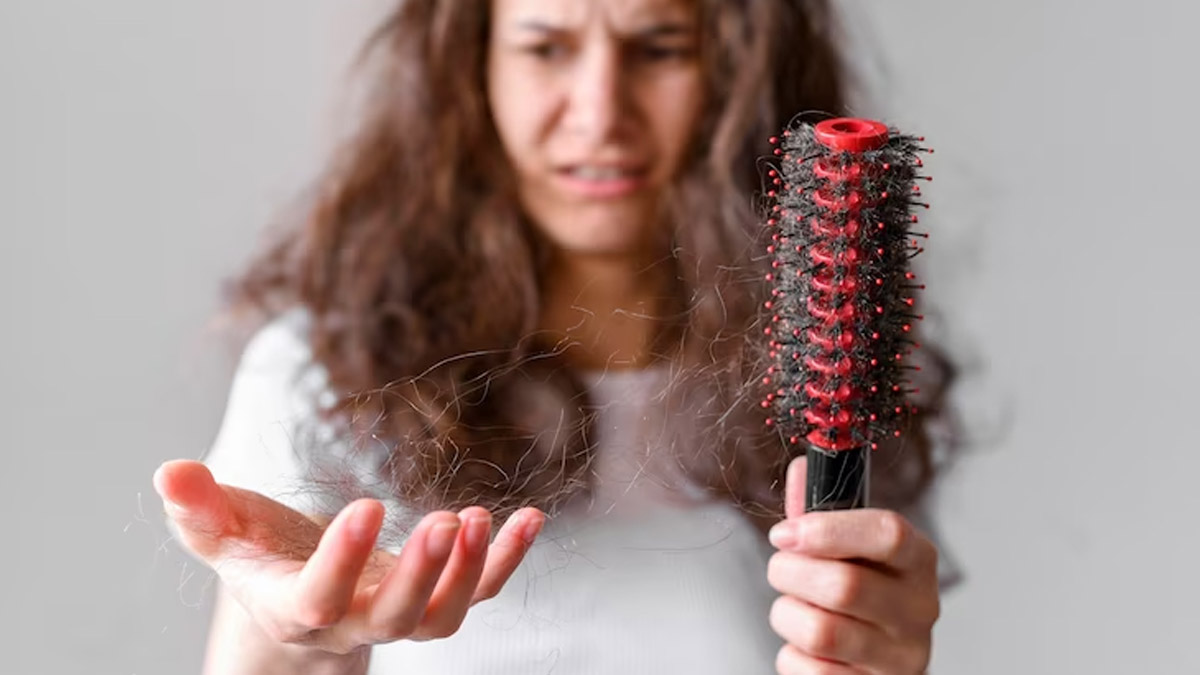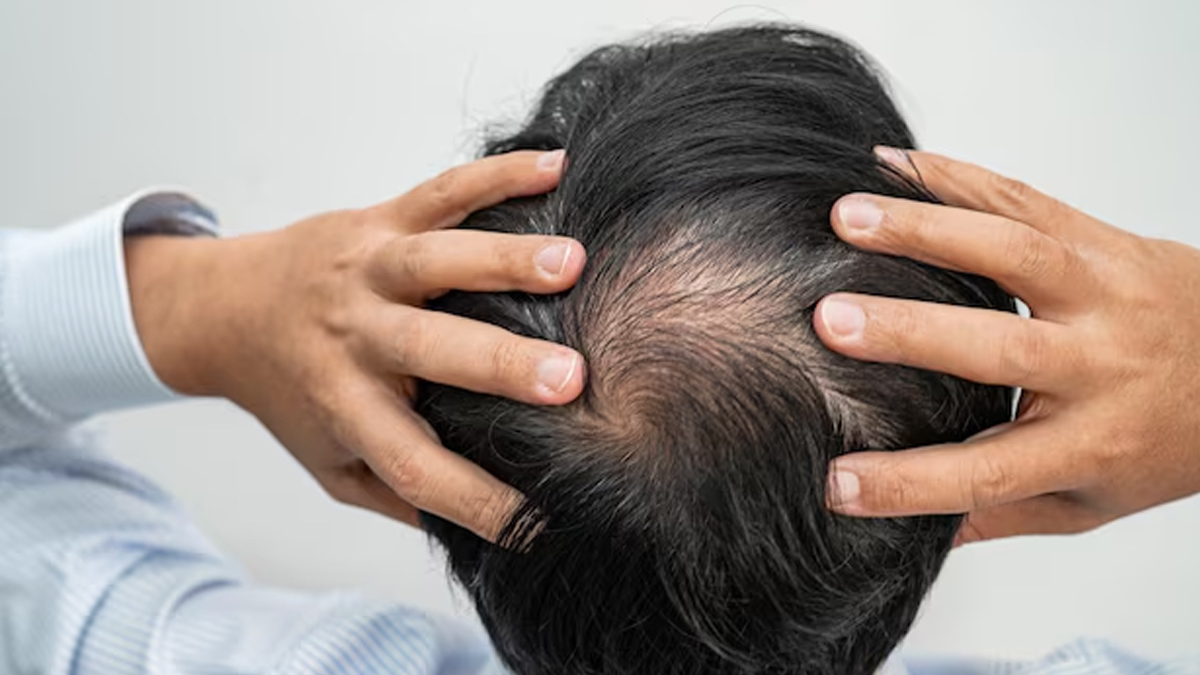
Hair loss is one of the most common worries, cutting across generations and genders. Often, the reasons attributed to hair loss are genetics, stress, or medical conditions. There is rarely a mention of vitamin deficiency in this regard. Having an understanding of how nutrients impact hair health will help you take proactive steps towards balance in restoring healthier hair.
Table of Content:-
In an interaction with the editorial team of Onlymyhealth, our expert, Dr Sanjeev Gulati, Department of Dermatology, Sharda Hospital - Noida, explained the role of vitamins in hair growth and tips to restore that balance. Here’s everything you need to know!
Role of Vitamins in Hair Growth
Hair mainly consists of a protein called keratin, but its production as well as upkeep does depend on quite a few different nutrients. Essential vitamins and minerals help to retain the health and well-being of hair follicles, stimulate growth and prevent hair damage. “An imbalance of the body's key vitamins can disrupt its hair growth cycle. The symptoms are usually noticed in the hair, which falls out, breaking or shedding out excessively,” Dr Gulati shared.

Also Read: Does Your Hair Need Extra Oiling In Winter? Expert Answers
Major Vitamin Deficiencies Contributing to Hair Loss
A few major vitamin deficiencies that contribute to hair loss include:
1. Vitamin D
Vitamin D is essential for the formation of new hair follicles. The deficiency of this vitamin may result in alopecia, which is an autoimmune condition that leads to patchy hair loss. In addition, a deficiency in vitamin D contributes to general hair thinning.
2. Biotin (Vitamin B7)
Biotin deficiency is associated with brittle hair and nails. This water-soluble vitamin supports keratin production, and a lack of it can lead to hair thinning and breakage.
3. Iron
Iron is not a vitamin but an essential mineral that helps red blood cells carry oxygen to hair follicles. Iron deficiency, also known as anaemia, is a common cause of hair shedding, especially in women.
4. Vitamin B12
Vitamin B12 helps sustain the production of red blood cells, which supports the delivery of oxygen and nutrition to the scalp and hair roots. A deficit in this vitamin may cause weak hair growth that falls out very easily.
Also Read: Skin And Hair Mistakes To Avoid In 2025: Expert Shares Lessons from 2024
5. Vitamin E
Vitamin E is an antioxidant that helps one repair and regenerate tissues, the scalp included. Its deficiency promotes oxidative stress contributing to hair loss
6. Zinc
Zinc plays a role in tissue growth and repair, such as hair follicle repair. A deficiency may cause weakening of the hair shaft, causing hair loss.

Symptoms of Vitamin Deficiencies
- Hair that is thinning or brittle
- Excessive shedding
- Hair grows slowly
- Irritation or dryness of the scalp
If you experience any of these symptoms, seek a blood test from a healthcare professional to check for deficiencies.
Ways to Balance and Promote Hair Growth
A few expert-approved ways to promote hair growth are:
1. Maintain a Balanced Diet
Emphasise nutrient-dense foods such as leafy greens, fatty fish, eggs, nuts, seeds, and whole grains. Additionally, add fortified foods to supplement with extra vitamins D and B12 if necessary.
2. Consider Supplements
If dietary changes are not enough, supplements can be added. Go for products that contain biotin, vitamin D, and iron, but consult a healthcare provider before beginning any new supplement regimen.
3. Hydrate
Adequate hydration helps in general health and does wonders to your hair, scalp, and skin.
4. Protect Your Hair
First things first, avoid excessive heat styling and harsh chemical treatments. Secondly, use a wide-tooth comb to reduce breakage.
5. Practice Scalp Care
Massage your scalp regularly with or without oil to stimulate blood flow and deliver nutrients. Other than that, use products that are rich in essential vitamins and antioxidants.
6. Manage Stress
Stress can contribute to hair loss. Therefore, engage in stress-reducing activities, such as yoga, meditation, or even physical exercise, to manage stress levels.
When to See a Professional
If the hair loss persists even after your diet and lifestyle have improved, see a dermatologist or a trichologist. They will identify the root causes and suggest targeted treatments, which may include topical solutions, oral medications, or advanced therapies.
Bottomline
Vitamin deficiencies are a significant, yet often ignored, cause of hair loss. Knowing the role of essential nutrients and taking proactive steps to regain balance can support healthier hair growth and overall well-being. Proper hair care combined with a nutrient-rich diet and professional guidance will make all the difference in your journey to stronger, healthier hair.
Also watch this video
How we keep this article up to date:
We work with experts and keep a close eye on the latest in health and wellness. Whenever there is a new research or helpful information, we update our articles with accurate and useful advice.
Current Version